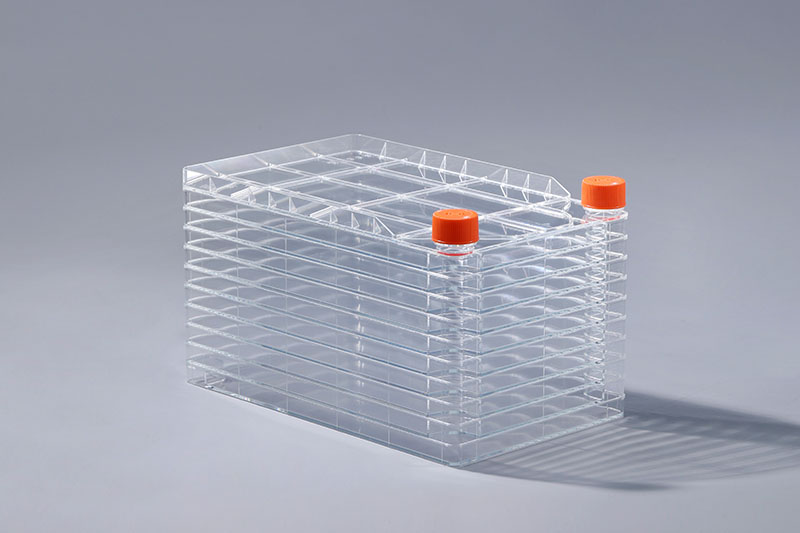Why Cell Factories Need Surface TC Treatment
The cell factory is a multi-layered cell culture consumable, which is mostly used in industrial mass production, laboratory operations and large-scale cell culture, and is an ideal choice for adherent cells. When choosing this kind of consumables, we will pay attention to a key factor, that is the surface TC treatment, why does it have to undergo this special treatment?
Cells can be divided into two types: adherent cells and suspension cells according to different growth methods. Suspension cells do not need to be attached to a support to grow, and can grow in suspension in a culture medium. Adherent cells must have a growth surface to which they can attach to grow, and only a hydrophilic solid interface can allow cells to attach.
The cell factory is mainly used for the culture of adherent cells, which is processed by injection molding of transparent polystyrene (PS) raw materials. As a polymer material, PS has good strength and plasticity, and has no toxicity, and has become the preferred material for disposable cell culture consumables. However, the surface of PS is hydrophobic, which itself is not conducive to the growth of adherent cells. In order to enhance the adherence performance of cells, it is necessary to undergo surface modification treatment and introduce hydrophilic groups to allow cells to grow better.
In summary, the purpose of TC treatment on the cell factory surface is to adapt to the growth of adherent cells. The consumables used for suspension cell culture do not necessarily require such specially treated vessels, but the consumables after surface TC treatment are generally also suitable for the culture of suspension cells.

评论
发表评论